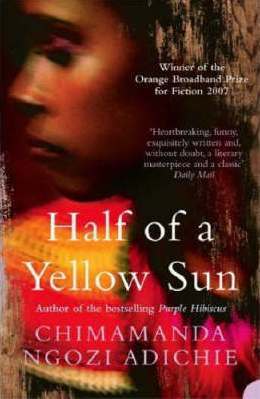 Being a big fan of all things Miranda, I was very excited about this book. The reader is taken on a light-hearted journey through some of life's more difficult everyday situations such as Christmas, the Office and Taking up Hobbies. If you know Miranda at all then you'll find her mannerisms and 'Mirandaism's' just jump out at you from the page, as if she were telling you the story in person. She takes on a very personal writer-reader approach, breaking that 'fourth wall' continually by talking directly to you. The tone is very familiar and makes you feel as though the two of you might be new best friends (I really think this could happen if I only had the chance to meet her...)
Being a big fan of all things Miranda, I was very excited about this book. The reader is taken on a light-hearted journey through some of life's more difficult everyday situations such as Christmas, the Office and Taking up Hobbies. If you know Miranda at all then you'll find her mannerisms and 'Mirandaism's' just jump out at you from the page, as if she were telling you the story in person. She takes on a very personal writer-reader approach, breaking that 'fourth wall' continually by talking directly to you. The tone is very familiar and makes you feel as though the two of you might be new best friends (I really think this could happen if I only had the chance to meet her...)I must say I like the style very much.
The title 'Is it just me?' is the main focus of the book- how normal and every day events can become troublesome and embarrassing. Miranda never fails to make me laugh with her stories and her brilliant 'let's not dress it up' outlook on life. One of my favourite quotes of the book is when she's bashing all the stupid diets there are out there and subsequently writes one of her own:
Chapter One: Eat a bit less
Chapter Two: Move about a bit more
The End
Hilarious.
There are constant thoughts on life in the book, that make you go 'I feel better about my life now,' or 'yes! That's what I've always thought!' I love her ability to hit the nail on the head. When discussing that tricky hobby section of a CV, Miranda refers to the 'holy trinity of boringly acceptable things everyone likes,' which you write because you haven't a clue what to really say. She is referring to 'swimming, reading and travelling.' This made me laugh out loud, as I think these very things are on my CV as we speak.
Throughout the book Miranda is in conversation with her late-teenage self. They each answer questions and reveal things about each other. I really liked this way of giving an insight into what her school days were like, as well as allowing us to reflect on what our younger selves would think of technology and other things today.
Unfortunately I found that the last third or so of the book was less funny. It seemed more of a pep talk regarding not feeling bad if you don't know anything or don't do anything or if you feel intellectually and emotionally stunted. And I can't help hoping I am none of these things, at least not in the desperate way Miranda described.
But nonetheless there were some nice life lessons, and overall the Miranda wisdom was very gratefully received.
This book is a very easy read that will make you laugh and make you feel better about yourself as you join Miranda in celebrating all that is awkward, embarrassing and downright ridiculous about life.
4/5




